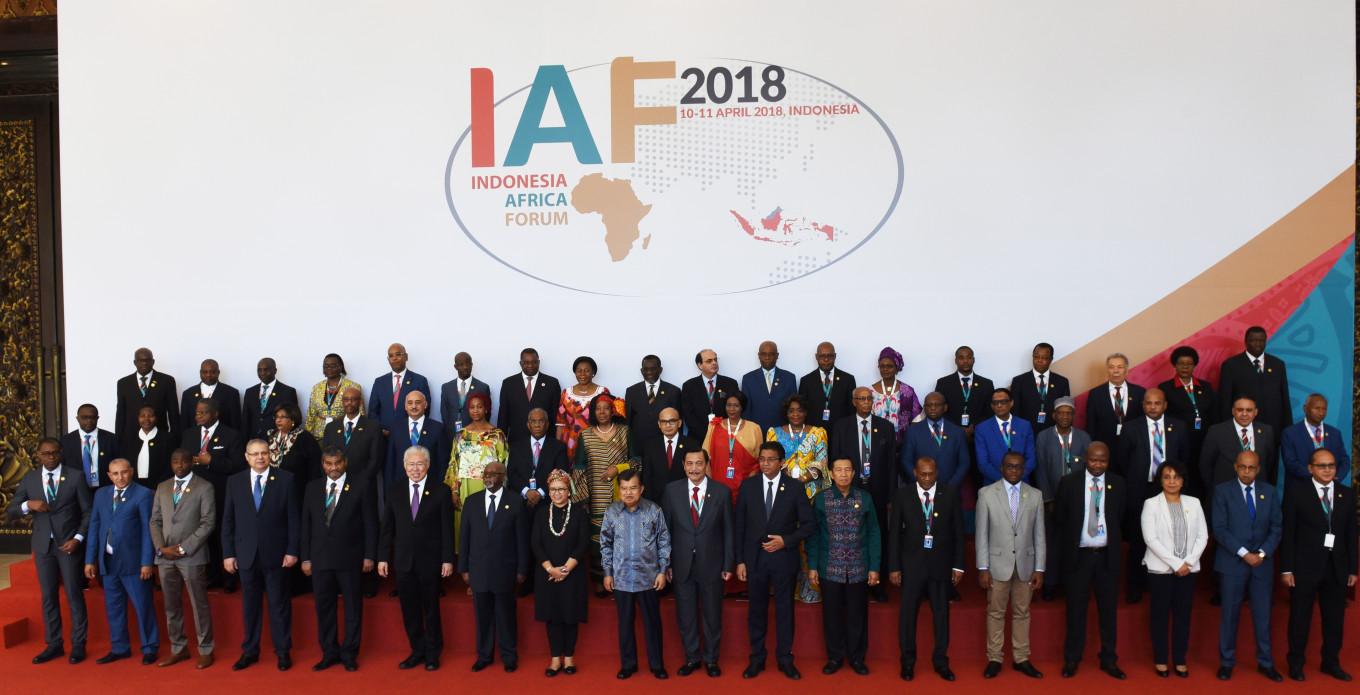Popular Reads
Top Results
Can't find what you're looking for?
View all search resultsPopular Reads
Top Results
Can't find what you're looking for?
View all search resultsThe way forward in the Indonesia-Africa relationship
Prabowo should consider revisiting the scale of Indonesia's diplomatic presence in Africa to reflect the magnitude of Indonesia’s interests.
Change text size
Gift Premium Articles
to Anyone
O
utgoing President Joko “Jokowi” Widodo will host the second Indonesia-Africa Forum 2024 (IAF) in Bali on Sept. 1-3. Following its success in the first meeting in 2018, the theme for IAF 2024 is Bandung Spirit for Africa’s Agenda 2063 with several subthemes that are aligned with Indonesia and Africa’s priorities including economic transformation, down-streaming critical minerals, energy cooperation, health, food security and development cooperation.
Jokowi has invited 24 heads of states/governments of African countries for the second summit. This forum has strategic importance, not only because it will serve as the last high-level forum convened under the leadership of Jokowi, but also because the forum will take place at a critical time where the baton will pass over the baton to the succeeding administration of president-elect Prabowo Subianto.
Prabowo was the only presidential candidate who mentioned Africa in his foreign policy programs during the presidential debate, stating that many African countries see Indonesia as a role model and learn from Indonesia because the nation is considered as a developing country that is successful in managing natural resources as well as dealing with poverty.
Sharing many similarities as the center of economic growth as well as the world’s mineral reserves and biodiversity, the history of Indonesia and Africa’s relationship goes back to 1955. During the leadership of Sukarno at the Asia-Africa Conference in Bandung, the first occassion where Asian and African nations met and solidified themselves as pillars of the Non-Alignment Movement (NAM).
Indonesia will host the celebration of the 70th anniversary of the 1955 Asia-Africa Conference.
The relations were further reiterated in 2005 by establishing the New Asian-African Strategic Partnership (NAASP). However, this platform could have been more successful in institutionalizing Indonesia's multilateralist approach to African nations. At the same time, other major Asian powers, such as China, India, Japan and South Korea, have developed their cooperation platforms with their respective African partners.
Realizing this, President Jokowi set a different approach, prioritizing Africa in Indonesia’s foreign policy and institutionalizing a more concrete country-to-continent approach through the IAF in 2018. Jokowi continued to implement an economic-driven approach to Africa by convening the Indonesia-Africa Infrastructure Dialogue in August 2019 in Bali.



















